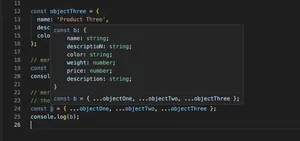Introduction
Adding static types to JavaScript, TypeScript brings clarity and predictability to codebases. Function parameter annotations are a cornerstone of TypeScript, offering precise control over the types of arguments functions can accept.
Basic Annotations
Befriending TypeScript starts with understanding basic type annotations. Let’s say you have a function that sums two numbers. In JavaScript, you would write:
function sum(a, b) {
return a + b;
}
In TypeScript, you can explicitly specify the types of parameters a and b to be numbers:
function sum(a: number, b: number): number {
return a + b;
}
This ensures that only numbers are passed to the sum function.
Advanced Types
When you need more than just primitives, TypeScript type annotations shine. If you’re working with an object, for example:
function greet(person: { name: string; age: number }) {
return 'Hello ' + person.name;
}
This defines a parameter person that must be an object with a name property of type string and an age property of type number.
Interface Parameter Annotations
As your applications grow, you’ll want to extract types out for reusability with interfaces:
interface Person {
name: string;
age: number;
}
function greet(person: Person) {
return 'Hello ' + person.name;
}
Now Person can be reused across multiple functions, promoting DRY code.
Optional Parameters and Defaults
Optional parameters in TypeScript can be denoted with a ?:
function greet(name: string, age?: number) {
return 'Hello ' + name;
}
If age is left out, TypeScript will infer it as number | undefined. To set default values:
function greet(name: string, age: number = 30) {
return 'Hello ' + name;
}
This sets a default age if none is provided.
Rest Parameters and Tuples
TypeScript also supports rest parameters and their annotation, excellent for when the number of parameters is unknown:
function sum(...numbers: number[]): number {
return numbers.reduce((acc, curr) => acc + curr, 0);
}
For a fixed sequence of parameters, you can use tuple types:
function trainModel(...dataset: [number, number, string][]) {
// Implementation goes here.
}
This makes sure the arguments follow a specific structure.
Function Overloads
In more sophisticated scenarios, your functions might need to handle different types with function overloads:
function getValue(key: string): string;
function getValue(key: number): number;
function getValue(key: any): any {
// Implementation varies based on key
}
TypeScript will ensure you’re handling all declared scenarios within your function body.
Generic Parameter Types
When you need maximum flexibility with type-safety, generics come into play:
function insertAtBeginning<T>(array: T[], value: T) {
return [value, ...array];
}
Generics allow you to define a placeholder type T, which can be used to enforce consistency across the parameters.
Conclusion
TypeScript’s function parameter annotations arm developers with precision and power, significantly boosting code reliability and maintainability. Embracing them is a major step towards type-safe JavaScript applications.
